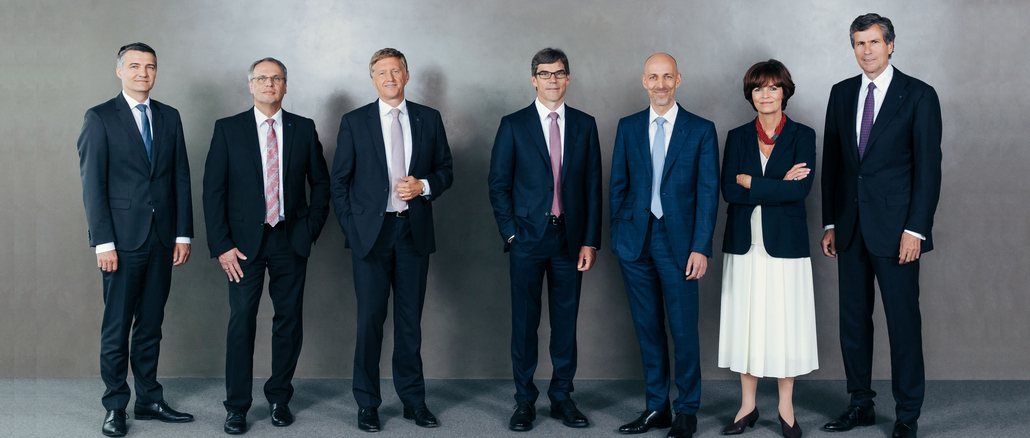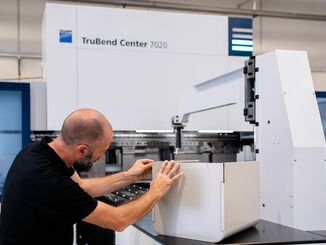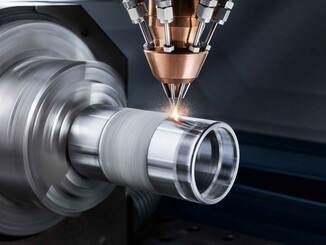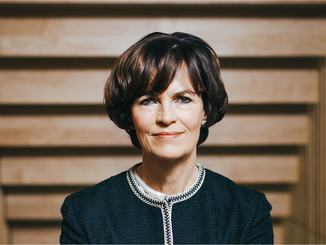
The Trumpf Group reports a slight increase in sales of 0.5 percent to 3.50 billion euros at the end of fiscal 2020/21 on June 30, 2021 (fiscal 2019/20: 3.48 billion euros). Order intake increased significantly by 19.7 percent to a company record of 3.9 billion euros (fiscal 2019/20: 3.3 billion euros).
Operating earnings before interest and taxes (EBIT) developed very positively at 370 million euros. It increased by 19.5 per cent compared to the 2019/20 financial year (309 million euros). In the first half of the year, Trumpf was able to stabilize earnings despite a low level of sales by increasing productivity, changing the product mix, and consistently cutting material costs.
In the second half of the year, earnings increased significantly as a result of higher sales. Partly due to the reluctance to invest, the company achieved an EBIT margin of 10.5 percent (previous year: 8.9 percent).

© Trump
Nicola Leibinger-Kammüller, Chairwoman of the Group Management of Trumpf: “Thanks to consistent crisis management, Trumpf has come through the pandemic well. As a result of the strong upturn in demand, we have started the new fiscal year with an unexpectedly high order intake.”
However, she also admits, “Nevertheless, there remains a great deal of uncertainty for the coming months as to how bottlenecks in global chip supply chains, inflation, rising energy prices and their effect on transportation costs and capacity will impact our business.”
Trumpf’s largest individual markets
Germany is still the largest single market with 579 million euros in sales, closely followed by the largest single Asian market, China. There, sales rose by 50.7 percent to 525 million euros after a weak previous year.
The third largest market for Trumpf was the USA with 485 million euros, followed in fourth place by The Netherlands as the largest single European market with 460 million euros, due to the EUV business with the customer ASML.
Corona infections and development of employee numbers
As of 6/30/2021, the company had 877 Corona infections worldwide, including 114 in Ditzingen (Germany). The number of Trumpf employees increased once again during the reporting period. New jobs were created in the growth fields of EUV and electronics in particular.
As of June 30, 2021, the company employed 14,767 people worldwide (previous year: 14,325). In Germany, 7,602 people were employed, 4,400 of them at the headquarters in Ditzingen. In the year under review, 517 young people completed an apprenticeship or a course of study at the dual university. The trainee ratio was thus 3.6 percent, the same as in the previous year (3.6 percent).
Investments and acquisitions, high development cost ratio
Due to the economic uncertainties caused by the Corona pandemic, investments were scaled back in the past fiscal year. The company invested a total of 145 million euros in land and buildings, technical equipment and operating and office equipment. This is 25.2 percent less than in the previous year (194 million euros).
As of July 16, 2020, the majority stake in BeSpoon SAS was sold to the semiconductor manufacturer STMicroelectronics as part of a partnership in the field of tracking technology UWB.
With a contract dated March 18, 2021, Trumpf has acquired the Spanish software provider Lantek. Lantek develops, implements and maintains software for sheet metal and metalworking with any cutting technology.
Trumpf remained a very research-intensive company in fiscal 2020/21. At 382 million euros, research and development expenses were slightly higher than in the previous year (377 million euros). As a result, the ratio of development costs to sales increased slightly to 10.9 percent (previous year: 10.8 percent).
New “Alliance for Jobs 2025”
Management and the Works Council have agreed on a new Alliance for Jobs for the Ditzingen, Gerlingen and Hettingen sites (Germany) with effect from January 1, 2022. Among other things, this will provide new regulations for mobile working at Trumpf.
While 20 percent of working hours were previously possible as mobile work in the pre-Corona era, departments and teams will be given much greater flexibility in the future. Trumpf is thus moving from an attendance culture to a results culture – there will no longer be precise percentage or hourly targets set by the company.
The managers and their teams are responsible for the concrete design. Working time accounts will also become more flexible. In the future, overtime that has been ordered or seen by the employee as necessary for a project will be divided equally between a so-called business cycle account and an employee account.
The business cycle account is available as collateral for cyclical fluctuations, and time in the employee account can be converted into time off or partially converted into cash. All non-tariff employees will henceforth work for Trumpf on the basis of trust-based working hours.
Web:
www.trumpf.com




